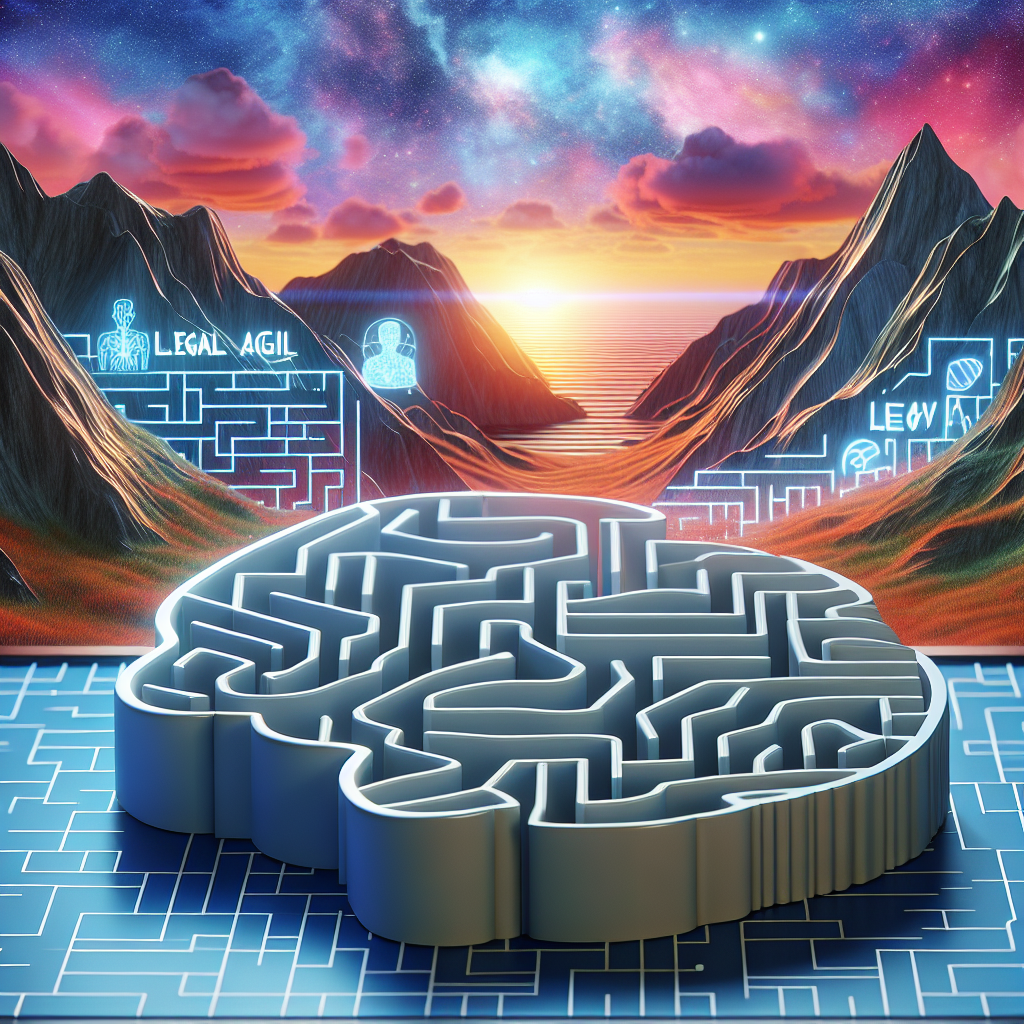Navigating the Legal Landscape of AGI: Challenges and Opportunities
Artificial General Intelligence (AGI) is a rapidly advancing field that has the potential to revolutionize the way we live and work. AGI refers to machines that have the ability to perform any intellectual task that a human can do. This includes tasks such as reasoning, problem-solving, and learning. As AGI becomes more prevalent in society, it raises a number of legal and ethical questions that must be addressed.
In this article, we will explore the challenges and opportunities of navigating the legal landscape of AGI. We will discuss the current state of AGI technology, the potential legal implications of its use, and how policymakers and stakeholders can work together to ensure that AGI is developed and deployed responsibly.
The Current State of AGI Technology
AGI is still in its early stages of development, but researchers and engineers are making rapid progress in creating machines that can perform increasingly complex tasks. Some of the most advanced AGI systems today are capable of reasoning, problem-solving, and learning in ways that were previously thought to be impossible for machines.
One of the key challenges in developing AGI is creating machines that can understand and interpret information in a way that is similar to how humans do. This requires a deep understanding of natural language processing, as well as the ability to reason and learn from experience. Researchers are also exploring ways to ensure that AGI systems are able to adapt to new situations and learn from their mistakes.
Legal Implications of AGI
As AGI technology continues to advance, it raises a number of legal and ethical questions that must be addressed. One of the key challenges is determining who is responsible for the actions of AGI systems. If a machine makes a mistake or causes harm, who should be held accountable? Should it be the developer, the user, or the machine itself?
Another challenge is ensuring that AGI systems are developed and deployed in a way that is fair and equitable. There are concerns that AGI could exacerbate existing inequalities in society, such as by displacing workers or perpetuating biases in decision-making. Policymakers must work to ensure that AGI is developed in a way that benefits all members of society, not just a select few.
Opportunities for AGI
Despite the challenges, AGI also presents a number of opportunities for society. AGI has the potential to revolutionize industries such as healthcare, transportation, and education, by enabling machines to perform tasks more efficiently and accurately than humans. AGI could also help to address some of the most pressing challenges facing humanity, such as climate change and global poverty.
In addition, AGI has the potential to improve the quality of life for individuals by automating mundane tasks and freeing up time for more meaningful pursuits. For example, AGI could help to streamline administrative tasks in the workplace, allowing employees to focus on more creative and fulfilling work.
Navigating the Legal Landscape of AGI
In order to navigate the legal landscape of AGI, policymakers and stakeholders must work together to address the challenges and opportunities that AGI presents. One of the key challenges is ensuring that AGI is developed and deployed in a way that is safe and ethical. This may require the development of new laws and regulations to govern the use of AGI, as well as the establishment of industry standards and best practices.
Policymakers must also work to ensure that AGI systems are transparent and accountable. This may require the development of new tools and mechanisms to monitor and regulate the behavior of AGI systems, as well as the establishment of mechanisms for redress in the event that harm occurs. In addition, policymakers must work to ensure that AGI is developed in a way that respects the rights and dignity of individuals, and does not perpetuate existing inequalities.
Frequently Asked Questions
Q: Who is responsible for the actions of AGI systems?
A: One of the key challenges in developing AGI is determining who is responsible for the actions of AGI systems. This is a complex question that may require new laws and regulations to address. In some cases, the developer of the AGI system may be held responsible for its actions, while in other cases, the user may be held accountable. Ultimately, it may be necessary to develop new mechanisms for regulating and monitoring the behavior of AGI systems, in order to ensure that they are safe and ethical.
Q: How can policymakers ensure that AGI is developed and deployed responsibly?
A: Policymakers can ensure that AGI is developed and deployed responsibly by working with stakeholders to develop new laws and regulations that govern the use of AGI. This may include the establishment of industry standards and best practices, as well as the development of mechanisms for monitoring and regulating the behavior of AGI systems. Policymakers can also work to ensure that AGI is developed in a way that benefits all members of society, not just a select few.
Q: What are some of the potential benefits of AGI?
A: AGI has the potential to revolutionize industries such as healthcare, transportation, and education, by enabling machines to perform tasks more efficiently and accurately than humans. AGI could also help to address some of the most pressing challenges facing humanity, such as climate change and global poverty. In addition, AGI could improve the quality of life for individuals by automating mundane tasks and freeing up time for more meaningful pursuits.
In conclusion, navigating the legal landscape of AGI presents a number of challenges and opportunities for society. By working together to address these challenges, policymakers and stakeholders can ensure that AGI is developed and deployed in a way that is safe, ethical, and beneficial for all members of society.

